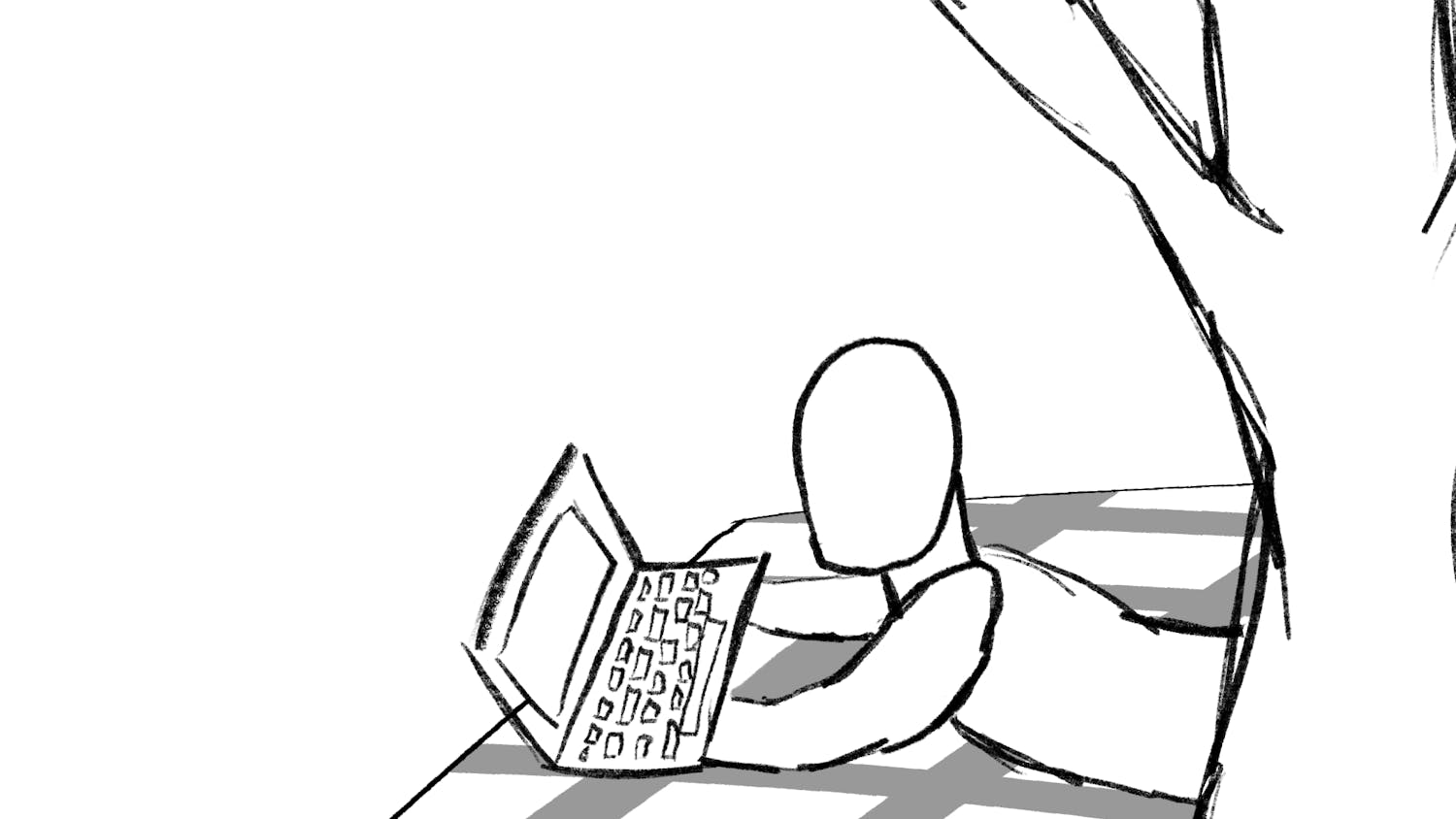Two weeks ago, in our second staff issue, we editorialized on the apparent disconnect between staff and students, calling upon the latter to use their status as patrons of this institution to rally on behalf of those making barely livable wages. On Thursday, our community woke up to multiple instances of vandalism; both on the side of the McCullough tent and on the east-facing side of Coffrin Hall.
We think that it’s safe to assume that this graffiti was done by a student — and unfortunately, student vandalism is nothing new. These messages last week, however, were underscored by a much different tone than the thoughtless destruction of previous instances. They read in black spray paint, respectively, “Raise the Wages,” “Pro Worker Anti Admin,” “End Union Busting @ Midd” and “Higher Wages Now! End Union Busting @ Midd!”.
Claiming to support staff while increasing their workload — which they have long expressed is unsustainable — is unacceptable. On Instagram, college horticulturalist Tim Parsons said, “If you really want to help staff stop disrespecting our campus, we don’t have time for this. Work with us, not against us.” One commenter, a staff member at the college, noted that it took 40 hours of staff labor to address the vandalism on the tent alone.
It’s not as if administrators, or anyone else making decisions about staff wages, are the ones scrubbing off the spray paint. As a result, this vandalism is nefariously performative; the offender committed an act that perhaps alleviated their own conscience but added to the workloads of multiple staff members, without making any meaningful impact.
This instance is, in essence, characterized by a uniquely vicious level of entitlement that has only served to exacerbate the continued abuse of college staff that the vandalizer themself appears to condemn. It also comes off as paternalistic, with the implication that students know how to rally for staff better than staff themselves know how to do. We don’t know if this was spontaneous or planned, but we do know that it is reflective of many aspects of Middlebury’s broader culture of social justice — in which a predominantly white and wealthy student body latches on to issues to make themselves feel better about the privilege they embody while remaining completely out of touch with the marginalized communities themselves.
It’s particularly frustrating knowing that we have seen first hand the ability of student protests and demonstrations to catalyze an increase of the wage floor. The act of vandalism last week is solely destructive and may undermine future efforts regarding the rights of staff. Student activism going forward might struggle if associated with this, possibly being brushed away as superficial and hostile. There are so many other avenues that could have been taken, yet this person chose one that will only serve to widen the gap between staff and students.
We can only hope that students will channel their frustrations — which are more than valid — toward means that are in line with what staff members actually need and want from us.
We too are frustrated with how administrators have consistently sidelined and overworked workers, and we often don’t know the best way to go about addressing this. We do know, however, that a spray paint power trip only furthers mistreatment of staff.
We are not saying that forms of protest should only be peaceful and palatable for the powers that be. As a board, we support disruptive actions on and off campus to enact change. But it is critical to not consequently disrupt the lives of those we are aiming to help, which is what this graffiti ultimately did.
When it comes to activism, students often have nothing to lose. Just last week, more than a dozen students interrupted a Board of Trustees meeting to rally on behalf of Professor Lana Povitz, after which their demands were met, and no disciplinary action occurred. This is not to equate activism on behalf of faculty with that of staff, as the latter is a significantly more uphill battle.
It is, however, important to note the extent to which students can go without suffering any immediate consequences for their activism. On the other hand, staff have everything to lose; they could be continuously under threat of being fired or passed over for promotion if they began to organize. It is imperative for students to recognize this and take advantage of their own agency on behalf of staff.
At the end of the day, effort and dedication equate to results; anonymous graffiti that likely took all of fifteen minutes to complete is not going to better the lives of over eight-hundred staff members. It is integral that students invest significant time and energy into engaging with staff members and mobilizing their peers — but only if these actions are intentional, meaningful and do not cause additional harm for the communities that students are trying to advocate for.




